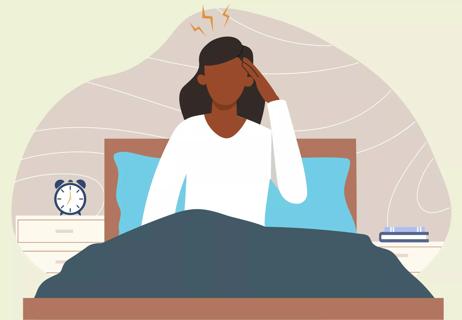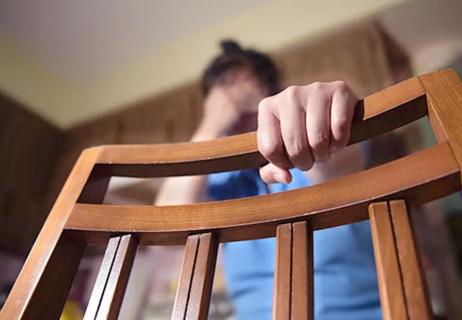Dizziness typically falls into two categories

Hypertension, also known as high blood pressure, is called “the silent killer” for a reason: It can have far-reaching consequences for your health, but for the most part, it’s not accompanied by any warning signs whatsoever.
Advertisement
Cleveland Clinic is a non-profit academic medical center. Advertising on our site helps support our mission. We do not endorse non-Cleveland Clinic products or services. Policy
Dizziness is sometimes thought to be a symptom of high blood pressure — but it’s not usually the case, says preventive cardiologist Luke Laffin, MD. He explains how dizziness may be related to your blood pressure and what’s probably happening instead.
High blood pressure isn’t actually associated with feelings of dizziness, Dr. Laffin says. But to try to figure out what’s at the root of your issue, it’s important to first figure out what kind of dizziness you’re having. Doctors usually put this symptom into two different categories.
One kind of dizziness is the kind that feels like the room is spinning. This feeling is typically associated with vertigo, which can be caused by a variety of conditions, including ear infections, head injuries and more — but not high blood pressure.
“Vertigo symptoms are very unlikely to be caused by any type of blood pressure issues,” Dr. Laffin says. “For most people, it’s an inner ear issue.”
If you’re experiencing frequent vertigo, it’s important to talk to your doctor to try to identify and treat the cause.
The other kind of dizziness is lightheadedness — when you feel woozy or unsteady on your feet, like you might faint.
“That is oftentimes not caused by high blood pressure but by changes in blood pressure,” Dr. Laffin explains. “Going from a high blood pressure to a low blood pressure can definitely result in lightheadedness, feeling unsteady and sometimes even frank syncope, or passing out.”
Advertisement
This kind of sudden change in blood pressure can happen when you switch positions, like if you stand up quickly after you’ve been lying down for a while or kneeling in your garden. Typically, our bodies can adjust quickly to these changes in position, sending enough blood flow to our brains to accommodate changes in position.
Sometimes, though, it takes your body a moment to adjust, which temporarily causes less blood flow to your brain. That’s when you feel lightheaded.
Both vertigo and lightheadedness can actually be signs of low blood pressure, not high blood pressure. Low blood pressure is more common in older adults and people with health conditions or those who take certain medications.
It’s normal to have an occasional dizzy spell when you stand up. “It doesn’t mean that there’s some major problem,” Dr. Laffin notes, “and the biggest way around it is to make sure that you’re hydrated.”
To try to prevent dizziness when you change positions:
But if you find yourself frequently dizzy, or if you pass out when changing positions (or any time, really), it’s time to check in with a medical professional to see what might be at play.
“If this happens multiple times a day or to an extreme extent, that’s a sign to talk with your doctor,” Dr. Laffin advises.
To hear more from Dr. Laffin on this topic, listen to the Health Essentials Podcast episode, “Combating High Blood Pressure.” New episodes of the Health Essentials Podcast publish every Wednesday.
Advertisement

Sign up for our Health Essentials emails for expert guidance on nutrition, fitness, sleep, skin care and more.
Learn more about our editorial process.
Advertisement

While similar, one may make you feel lightheaded, while the other can cause a spinning sensation

Mornings can be hard enough without feeling dizzy, too

The short answer from a cardiologist

Understanding dizzy spells, what causes them and how to exercise if you get them

Foods high in potassium, calcium and vitamins C and E can help lower your blood pressure

This spinning sensation is a symptom, not a condition, so you need to know what’s causing it before you can treat it

Making lifestyle changes can help reduce your blood pressure, but taking cinnamon supplements probably isn’t one of them

Hypertension strains your heart and blood vessels, causing damage that can contribute to heart attacks

Even small moments of time outdoors can help reduce stress, boost mood and restore a sense of calm

A correct prescription helps your eyes see clearly — but as natural changes occur, you may need stronger or different eyeglasses

Both are medical emergencies, but they are very distinct events with different causes